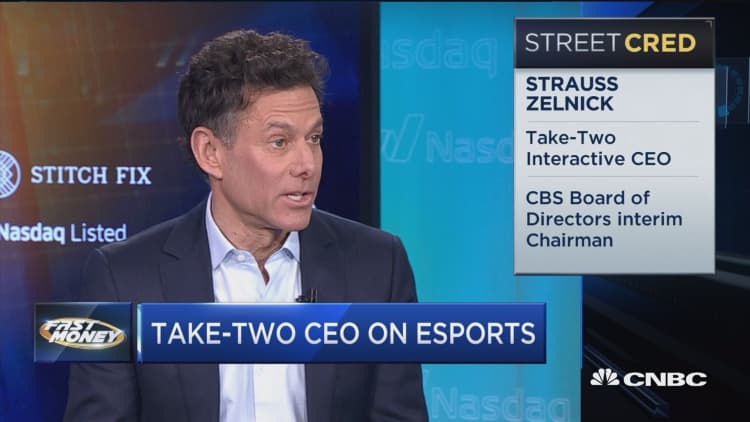As esports becomes a bigger buzzword among Wall Street analysts, a top team owner says potential investors should focus on one key factor: Who builds community best?
Sponsorships and brand deals are projected to bring in more than a third of total revenue for the industry this year, according to research firm Newzoo. But Steve Arhancet, owner and CEO of Team Liquid, an esports organization whose parent group includes the likes of former Sony executive Peter Guber and Washington Capitals owner Ted Leonsis, says the main driver of revenue in esports will ultimately come from businesses that are centered around the fan.
"That is what will eventually drive revenues," he told CNBC. "You want to be able to invest in [companies and brands] that can generate substantial revenue in [the] future, so ask yourself: Who owns that fan relationship?"
"You can say that the gamer is playing the game and they have developed [a] relationship with the game, but I would argue that the teams have the biggest arsenal to create that relationship and drive revenue per capita," he argued.
Esports enthusiasts, which Newzoo uses to define a person who watches professional esports content more than once a month, are set to bring in around $5.45 in revenue per capita this year, according to the research firm. This represents an increase of about 9% from 2018. This increase in revenue per capita is also taking place during a year where the total esports audience is projected to grow to almost 454 million, which Newzoo notes is a year-on-year growth of 15% based on their numbers.
About 201 million of those audience members are projected to be the esports enthusiasts that Newzoo has identified.

But Arhancet says that many revenue projections are missing two key elements that hinge on community and fanbase-building.
First, he points out that revenue estimates often fail to account for how much developers earn on in-game purchases related to esports events versus sales from the event itself. For example, Riot Games, the publisher behind League of Legends, has released special skins (different outfits for in-game characters) or used already-existing in-game purchases to add to prize pools for some of their major events.
Others also rely on in-game purchases to fund their event prize pools like publisher Valve's Defense of the Ancients 2 (DotA 2), which broke its own prize pool record with over $25.5 million raised for its annual The International tournament last year.
Additionally, Arhancet believes that community-building will fuel the growth of what is projected to be the second-biggest revenue generator for esports: Media rights deals.
A number of prominent media deals have already appeared in esports. For instance, last year Disney inked a partnership with Activision Blizzard's Overwatch League to broadcast their games on a variety of Disney's platforms. Twitch and Facebook have also snagged a number of deals with prominent leagues in the space.
Arhancet argues that media companies — including digital platforms like Twitch — will need to evolve in order to meet the demands of a growing esports fanbase. Specifically, he believes they will have to shift away from traditional linear programming in favor of a more interactive viewing experience.
"[When you watch League of Legends, for example], you're not just watching the game," he said. "You're also watching the chat, having conversations and pushing emotes while you watch. That's pushing additional requirements on digital networks to become more communities than just streaming services."
The esports industry is projected to hit over $1 billion in revenue this year.


